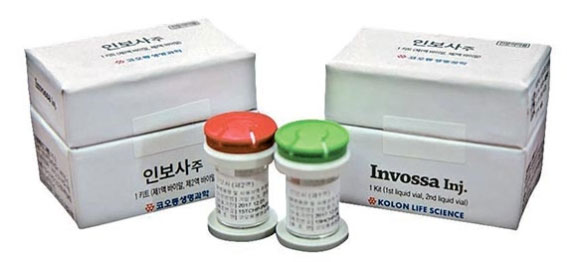Kolon Life Science said Tuesday that the International Chamber of Commerce (ICC) ruled the company pays Mitsubishi Tanabe Pharma about 43 billion won ($39.1 million), including a 26.4 billion won upfront payment, interest, and compensation.

The ICC said the technology transfer contract was concluded on the premise that Kolon Life's osteoarthritis drug Invossa was a cartilage-derived cell, which was later identified as a 293-derived cell. In November 2016, Kolon Life Science signed a 500 billion won deal with Mitsubishi Tanabe to transfer the technology of Invossa.
In December 2017, Mitsubishi Tanabe told Kolon Life that it would cancel the contract because the latter did not deliver clinical trial data properly, failing to fulfill its obligations.
Mitsubishi Tanabe filed a complaint with the ICC in April 2018, claiming the Korean company should return an upfront payment of 25 billion won on contract cancellation caused by Kolon Life’s fault. The Japanese company also said that the ingredients of Invossa were different from the registered license and added it to the cancellation reasons.
The Korean company's U.S. subsidiary, Kolon TissueGene, previously said some of the Invossa ingredients were derived from kidneys instead of cartilage, different from those used when receiving regulatory approval in Korea in 2017. After the mishap, the drug sales in Korea and clinical trials in the U.S. were all suspended.
"We will consult with our legal representatives and other experts to determine the direction of our future response," a Kolon Life Science official said.
Invossa was approved as the first gene therapy in Korea from the Ministry of Food and Drug Safety in July 2017. However, the drug lost the permit because one of the main ingredients was 293-derived cells that can induce tumors.

